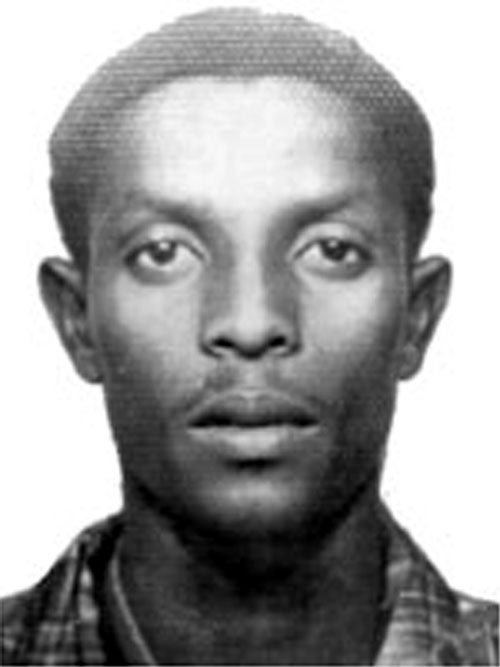Senior al-Qa'ida commander killed in Somalia
Police say the man suspected of the 1998 US embassy bombings shot dead at roadblock

Your support helps us to tell the story
From reproductive rights to climate change to Big Tech, The Independent is on the ground when the story is developing. Whether it's investigating the financials of Elon Musk's pro-Trump PAC or producing our latest documentary, 'The A Word', which shines a light on the American women fighting for reproductive rights, we know how important it is to parse out the facts from the messaging.
At such a critical moment in US history, we need reporters on the ground. Your donation allows us to keep sending journalists to speak to both sides of the story.
The Independent is trusted by Americans across the entire political spectrum. And unlike many other quality news outlets, we choose not to lock Americans out of our reporting and analysis with paywalls. We believe quality journalism should be available to everyone, paid for by those who can afford it.
Your support makes all the difference.As a fugitive terror target with a $5m (£3m) bounty on his head, Fazul Abdullah Mohammed has been on the FBI's Most Wanted list for almost a decade. But yesterday, African police and US authorities confirmed that his life on the run was over after he had been shot dead at a roadblock in Somalia.
Mohammed, considered one of al-Qa'ida's most senior commanders, remained the chief suspect for the bombing of American embassies in Kenya and Tanzania in 1998. The first time al-Qa'ida had struck US targets, 240 people were killed in the two attacks. A further five thousand were injured.
Somali authorities said Mohammed's body had been handed over to US officials for identification after it was retrieved from a gunfight in Mogadishu on Tuesday. They reported that Mohammed, 38, and another suspected terrorist refused to stop their car, leading to Somali forces opening fire.
It is thought the men had mistakenly driven into the roadblock, a risk not normally taken by fugitives. The two men "defended themselves" before being killed, police said.
Halima Aden, a senior national security officer in Somalia, said: "He [Mohammed] had a fake South African passport and, of course, other documents. After thorough investigation, we confirmed it was him and then buried his corpse."
Hillary Clinton, the US Secretary of State, said last night: "His death is a significant blow to al-Qa'ida, its extremist allies and its operations in Africa. It is a just end to a terrorist who brought so much pain and death to so many innocents."
Mohammed was found in possession of $40,000 in cash and a bogus South African passport issued in the name of Daniel Robinson. Laptops, mobile phones, a gun and medicine were also seized from his car.
Mohammed's face appears on the FBI's website and listed as one of the world's most wanted terrorists, a register first set up in the US in 2001. It warns in bold red text: "Should be considered armed and dangerous." It added that he often wore baseball caps and is "very good with computers". Investigators for years have tagged him as "the most dangerous man in Africa", although some commentators have suggested that his power may have been overstated.
Mohammed was said to have been put in charge of al-Qa'ida's entire East Africa operation by Osama bin Laden in 2002. That year, he was accused of killing 13 people with a car bomb attack on the Paradise Beach Hotel in Kikambala, Kenya. He was also thought to be responsible for an unsuccessful attempt to bring down an Israeli aircraft with a missile launcher. At this time, he was suspected of travelling to Liberia and attempting to raise money by trading in blood diamonds and weapons.
Earlier this year, it was reported he had trained "sleeper operatives" in Mogadishu, including young men who had grown up in Britain.
But it was the embassy bombings that were at the top of the US charge sheet. The blast at the American outpost in Nairobi in August 1998 reduced the embassy to rubble and caused a neighbouring office block to collapse, crushing people inside and passers-by. The bomb was detonated just minutes after a similar attack on the US embassy in Dodoma, the capital of Tanzania. Bill Clinton, then the US President, vowed afterwards: "We will use all the means at our disposal to bring those responsible to justice."
Yet, after being indicted for the bombings in his absence in New York later that year, Mohammed repeatedly eluded those pursuing him. In 2007, he survived a US air strike near Ras Kamboni, Somalia. Some news agencies claimed at the time that he had been killed during the bombing, but US operatives were to be disappointed.
A year later, Mohammed embarrassed the Kenyan authorities by slipping away from a police dragnet surrounding his secret hideout in Malindi – possibly on a bus. Interpol records suggested he used plastic surgery to change his appearance.
Join our commenting forum
Join thought-provoking conversations, follow other Independent readers and see their replies
Comments